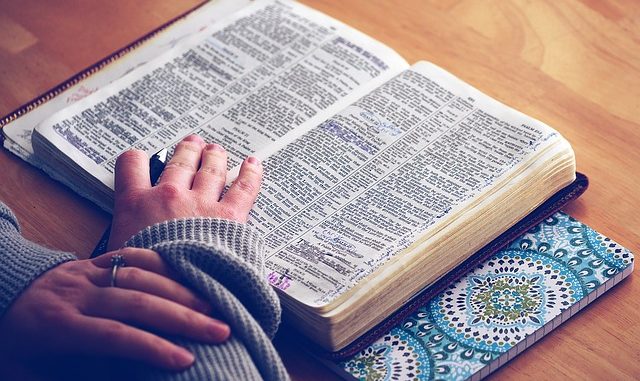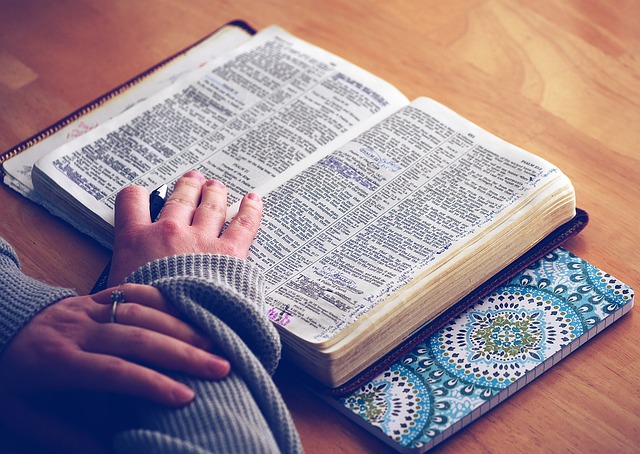
 The Ministry of Education has released guidelines for religious instruction in New Zealand state primary schools, intermediate schools and ngā kura. The guidelines have been a long time coming, with previous guidelines quashed in 2006 and this current implementation initiated in 2015.
The Ministry of Education has released guidelines for religious instruction in New Zealand state primary schools, intermediate schools and ngā kura. The guidelines have been a long time coming, with previous guidelines quashed in 2006 and this current implementation initiated in 2015.
It should be noted that this is not a review of the law allowing religious instruction and as such, the MOE make no comments about the appropriateness (or otherwise) of teaching religious faith in secular schools. To me, this means that some of the advice they give contradicts other legislation and education policy, which promotes inclusiveness, non-discrimination and the right to secular education. The obvious hypocrisy of providing guidelines on how to teach religious faith in a school where “…teaching in all state primary schools must be entirely of a secular character (non-religious) while the school is open.” is not lost on the writers as they repeatedly point out that the school boards do not have to allow religious instruction into the school at all.
Aside from the obvious contradiction mentioned above, the worst thing about these guidelines is that they are only guidelines. Evangelists are still able to use their position on a board of trustees to implement their own religious agenda and continue to discriminate against those children and families not of their religion and close the classroom to promote their own religious views. This would be wrong no matter what the view was, whether Christian, Muslim, Atheist or something else.
You can download the full document here (746kb PDF).
The following is my review of the 8 guidelines recommended by the Ministry of Education.
1. Use community consultation to inform the decision about whether or not to allow religious instruction.
The trouble with a decision by community vote is that it has no bearing on whether or not the question being asked is reasonable. A vote does not determine what is right, only what is popular. Imposing a preferred religious view on a secular school is an obvious breach of the principle of secular education. Some schools have recognised that the imposition of religious classes is wrong on principle, while others seem “hell-bent” on retaining religious instruction even when a large proportion of parents are against the classes. The point is that we should not be allowing a vote on whether or not to discriminate against part of a school community.
2. Provide full and accurate information to students, families and whānau to help them make informed decisions
Providing full and accurate information is something that often doesn’t happen. Not only do schools sometimes have little idea what is actually taught in Bible in Schools classes but when they are asked to provide information, they either don’t have it or are reluctant to provide it. One parent I know has been unable to get copies of teaching material despite months of requests and even when it is made available it is only “available in the office” and can’t be taken away or copied. Anyone would think that they have something to hide!
Further obfuscation from schools comes in the form of;
- Claims that classes are approved by the Ministry of Education (they aren’t)
- Not informing parents that the school or class is closed while the lessons take place.
- Misleading parents into believing that the classes are more about teaching values than endorsing a specific religious faith.
- Staff telling parents that the classes are “nothing to worry about”.
- Labelling the classes are anything other than “Religious Instruction”.
3. Offer valid alternatives to religious instruction if religious instruction takes place when the school would usually be open for teaching
I’d suggest that most schools are guilty of this. Many schools provide no alternative other than sitting in the library and some go as far as requiring students to do something menial such as picking up rubbish, effectively punishing any dissent. One of the main indicators of discrimination is to provide a lesser alternative to the favoured choice. In this case, it’s clear that most schools neglect and discriminate against the opt-out children by providing inferior alternatives to religious instruction. My own daughter’s schools show the opt-out class a video on values followed by playing the same 6 board games every lesson. We tried it but it is so boring that I now just take them to school late. There is no real effort put into creating a syllabus suitable to children in different age groups like there is for the religious instruction classes. And quite frankly, the only reason they have to do this is due to a religious agenda being implemented, so why should they? The teacher is not paid to do this.
The MOE guidelines strongly suggest that it is preferable for religious instruction classes to take place outside of normal school hours. This would be fair on children not wanting to attend religious instruction and
4. Require signed consent from a parent or caregiver before allowing a student to participate in religious instruction
Requiring parents to opt their children into a religious instruction class is at least a step in the right direction. However, given the lack of information (often misinformation) provided to parents, most existing consents are pretty meaningless. Past misinformation is rarely corrected to parents and so even if a school has an “opt-in” from a parent at the time of enrolment, without clearly informing parents the facts of religious instruction classes, it would be incredibly disingenuous to claim that past consents were valid. Most of the parents at our local school were told that RI Classes were “Ministry of Education Approved” and this was never corrected. Also, virtually all religious instruction programmes would have changed in the last couple of years, so any consent given was for a different syllabus and requires a new “opt-in” consent.
5. Use volunteers who are not teaching staff to lead religious instruction
This isn’t something that happens a lot but it does ignore an obvious issue. A teacher sitting supervising in the same room as a church volunteer is providing credibility and authority to what they say. We teach our children to respect their teacher. Their teacher is there allowing the lesson to take place. So it must all be true… right?
6. Provide secular school and student support services
This is a good example of a “guideline” being toothless. In Oamaru, there was a case of an evangelical Pastor who was the chairman of the board of trustees, a Bible teacher and also a chaplain in the same school. It was a blatant abuse of power that required parents to stick their necks waaay out to get him removed. It took a MOE investigation and significant local pressure to get him out. Do you think he would have bowed out simply because of this guideline?
7. Ensure safety checks on volunteers have been completed
A bit of a no-brainer.
8. Communicate the complaints procedure to families and whānau and use that complaints procedure to resolve issues
This is another rather pointless guideline, as the board of trustees do not have to justify their decision to promote religious faith, they only have to follow the law. I’ve found that schools aren’t particularly interested in discussing the principles involved. It’s probably because it is extremely hard to explain how it is ok to force non-Christian or non-religious children to stop their lessons to talk about God or shuffle them off to another room.
What did they miss?
David Hines from the Secular Education Network has pointed out a number of other gaps (in bold) that the guidelines failed to address.
It’s not compulsory and not monitored by the Ministry – People who are already actively discriminating against families who don’t share their religious views are not going to be concerned with following some suggestions that have no consequences.
There is no detailed guideline for religious observances – One example of this is the very common practice of prayers in Kapa Haka classes.
There is no guideline for secondary schools or teaching about religion in the curriculum – While teenage students are not the favoured prey of the evangelical (they ask too many questions), there is no legislation limiting religious faith teaching in secular state high schools.
The information doesn’t include giving parents and public inquirers a copy of the syllabus material – As mentioned above, this is very hard to come by. I have asked our school 2/3 times and got nothing. I’ve even asked the Churches Education Commission directly and also enquired of Bible teachers but they stay silent and prefer to keep it a secret.
It doesn’t cover karakia – Again, it is very common to have Christian karakia under the guise of respecting Maori cultural observance. (only around half of Maori are Christian)
Where to now?
What we should expect now is for schools to adhere to these guidelines and to “reset”. This means;
- A serious review of how appropriate it is to promote any religious views in the school.
- Providing accurate and detailed information to parents.
- Initiating community consultation to inform parents of the new guidelines and canvas opinion.
- Requiring new opt-in signed consents from all parents and not relying on out of date enrolment forms.
- Seriously considering moving RI outside of schools hours (this would probably end parent complaints about it)
- Offering a valid, quality alternative syllabus if RI continues within school hours. (Philosophy for Children NZ is a great option)
What about the long term?
As religious affiliation declines in New Zealand, it is inevitable that religious instruction classes will disappear. The legal challenge by David Hines and Tanya Jacob has been approved and will possibly be heard later this year. Regardless of the outcome, it will be another nail in the coffin of religious privilege. Our society is rapidly becoming more diverse. The non-religious sector of our population will soon be over 50% and is an increasingly vocal group. The lack of criticism that religion has historically enjoyed is disappearing.
As people feel more able to criticise long-protected religious privileges, we see more and more complaints about prayers in parliament, charitable status for religion, religious-based laws and especially recently, religion in politics. Some Christians tend to see this as “persecution”, which is ironic, considering they have held all the power for so long and all that is happening is a rebalancing of the scales.


Leave a Reply
You must be logged in to post a comment.